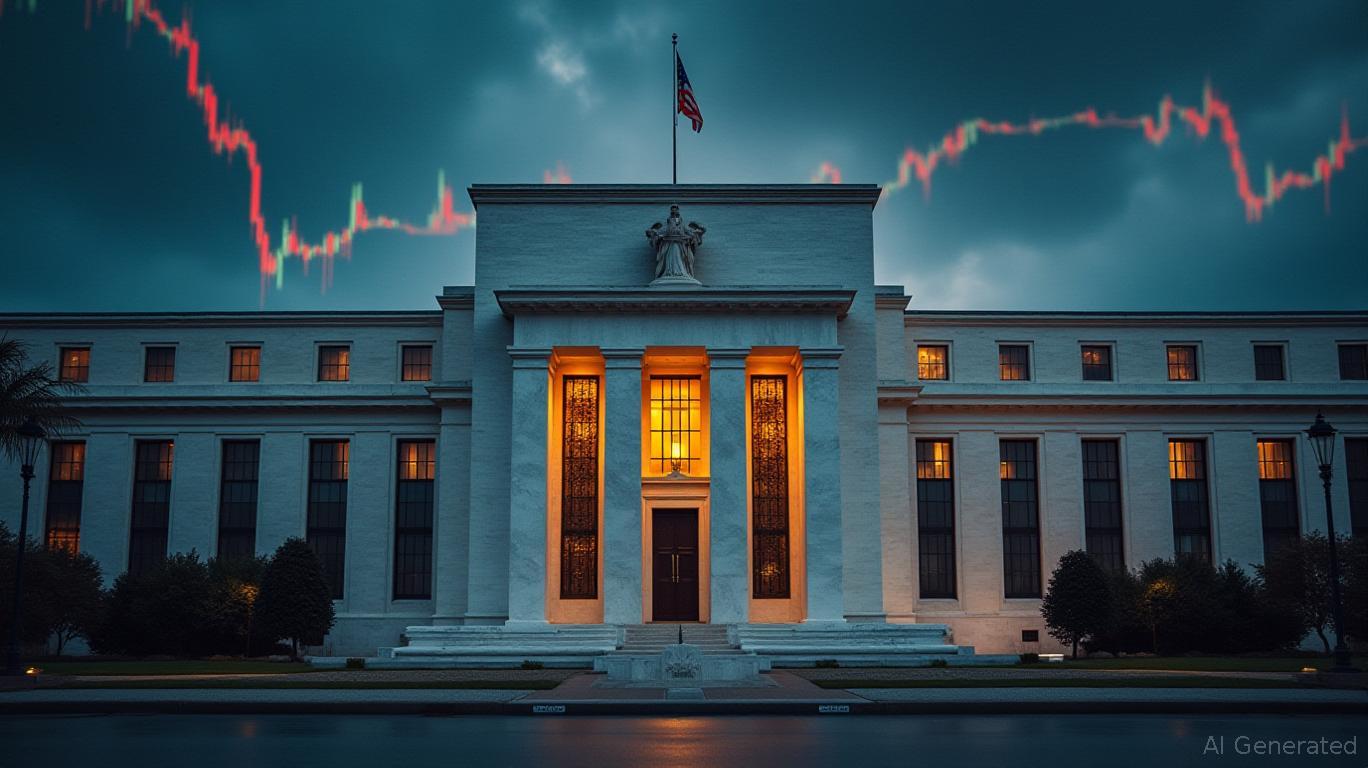Landmark ruling in India treats XRP as property, not speculation
A Madras High Court judge barred WazirX from reallocating a customer’s XRP holdings and declared cryptocurrency qualifies as property under Indian law, setting a precedent that may reshape how exchanges handle user assets during insolvency proceedings across multiple jurisdictions.
As The Times of India reported on Oct. 25, Justice N Anand Venkatesh ruled that the entity operating WazirX cannot redistribute, apportion, or reallocate 3,532.30 XRP coins belonging to Rhutikumari, who purchased the assets by transferring funds from her Chennai bank account.
The court granted an interim injunction after finding jurisdiction, despite WazirX’s argument that a Singapore High Court-supervised restructuring scheme controlled the matter.
Justice Venkatesh stated:
“Cryptocurrency is treated as a virtual digital asset, and it is not treated as a speculative transaction.”
The ruling cited Section 2(47A) of the Income Tax Act, which governs virtual digital assets, and found that cryptocurrency “is capable of being enjoyed and possessed (in a beneficial form) and is capable of being held in trust.”
WazirX contended that the platform does not own crypto wallets and that all users would receive pro rata compensation through a three-step process supervised by Singapore’s high court following a hack that halted withdrawals.
The exchange argued that the Madras High Court lacked jurisdiction because the arbitration was seated in Singapore.
The court rejected that position. Justice Venkatesh noted that Rhutikumari transferred funds from India, accessed the platform from within the country, and therefore established that part of the cause of action arose within the Madras High Court’s territorial jurisdiction.
The decision treats crypto holdings as distinct property rights rather than unsecured claims in a bankruptcy pool.
XRP property status shapes remedies in other venues
Courts in the US routinely treat crypto as property for remedial purposes, though regulatory classifications vary by agency.
The New York state court issued a temporary restraining order over stolen USDC in the LCX case and authorized service by NFT. Federal courts freeze wallets and seize crypto under Rule 65 and civil forfeiture statutes.
Relief against exchanges depends on the contractual structure: customers holding assets in omnibus or “Earn” programs that transfer title recover less than those with proper custody arrangements, where platforms act as bailees, as seen in the Celsius Earn ruling.
English courts recognize crypto as property and grant proprietary injunctions, freezing orders, and Bankers Trust disclosure against exchanges, including those overseas.
AA v Persons Unknown established the framework in a Bitfinex ransomware case, while Fetch.ai v Persons Unknown applied it to a Binance case.
LMN v Bitflyer confirmed disclosure orders can reach foreign exchanges. Parliament moved to codify digital-asset property concepts following the Law Commission’s 2023 report, solidifying the legal foundation for such orders.
| Is crypto “property”? | Yes; expressly stated and “capable of being held in trust.” | Yes for many purposes (tax/property; courts issue TROs, seizures). | Yes; courts treat crypto as property supporting proprietary relief; government moving to codify. | Yes; recognised across tokens and NFTs; can be held on trust. |
| Can courts stop an exchange from touching user coins? | Yes; interim injunction barred WazirX from reallocating customer XRP. | Yes, via TRO/prelim injunction and constructive-trust theories, but platform ToS can be outcome-determinative (Celsius Earn). | Yes; proprietary injunctions and disclosure orders regularly bind exchanges, incl. abroad (AA; Fetch.ai; LMN). | Yes; proprietary and Mareva relief granted; exchanges compelled to disclose. |
| Notable limits or wrinkles | Court asserted jurisdiction despite Singapore scheme; framed assets as trust property. | If ToS transfers title (yield/earn), users may be unsecured creditors in insolvency. | Some injunctions against exchanges have been discharged on the facts; relief is case-specific. | Strong on property/trust, but final outcomes still hinge on facts and contractual terms. |
Singapore’s High Court has granted proprietary and worldwide freezing injunctions over stolen crypto in CLM v CLN, recognized NFTs and tokens as property, and, in Bybit v Ho Kai Xin, confirmed that crypto can be held on trust. This doctrine is relevant when users claim an exchange or insider holds assets on their behalf.
Quoine v B2C2 was the first to flag trust issues in exchange settings. Subsequent cases refined the property analysis to support stronger customer protections.
The Madras ruling aligns India with jurisdictions that prioritize property rights over pooling schemes in cases where exchanges face insolvency or restructuring.
By establishing that crypto purchases create enforceable property interests rather than mere contractual claims, the decision may limit how platforms redistribute user holdings during financial distress and clarify that local courts retain jurisdiction over assets accessed and funded domestically, regardless of where corporate restructuring proceedings occur.
The post Landmark ruling in India treats XRP as property, not speculation appeared first on CryptoSlate.
Disclaimer: The content of this article solely reflects the author's opinion and does not represent the platform in any capacity. This article is not intended to serve as a reference for making investment decisions.
You may also like
Partisan Stalemate Results in $14 Billion Losses and 42 Million Facing Hunger as Shutdown Hits 35 Days
- U.S. government shutdown hits 35 days, matching historical record as partisan gridlock disrupts services for millions. - 42 million Americans face food aid delays under SNAP, with states using emergency funds amid federal funding disputes. - Economy risks $7B-$14B loss as shutdown extends, with GDP growth projected to drop 1-2% depending on duration. - Air traffic delays and unpaid federal workers highlight human costs, while political leaders blame each other for stalemate. - Trump administration oppose

Bitcoin Updates: Ambiguous Fed Rate Direction Triggers Crypto Sell-Off, $1.2 Billion Liquidated
- Crypto markets saw $1.2B in liquidations as Bitcoin and Ethereum dropped 3% amid macroeconomic uncertainty and trader panic. - Top exchanges like Hyperliquid and HTX recorded massive losses, with high-profile traders suffering $15M-$33M in single-day wipeouts. - Fed's ambiguous rate-cut signals and Trump-Xi meeting failed to stabilize prices, while Coinbase's negative premium index highlighted U.S. selling pressure. - Despite 3-month lows for ETH and altcoins, analysts like Nick Ruck suggest Fed policy s

Ethereum News Update: Crucial Support and Resistance Clash for Ethereum: Bulls and Bears Face Off in Intense Showdown
- Ethereum's price hovers near $3,600–$3,750 support, with bulls targeting $4,000+ and bears warning of a $3,300 drop. - Technical indicators show neutral-to-bearish momentum, while on-chain data highlights $165B reserves and stablecoin strength. - A Binance 30,000 ETH order and Fed policy signals could drive volatility, with $4,000+ potentially unlocking $5,000–$6,000. - Key resistance at $4,100–$4,250 remains intact since mid-2025, requiring a breakout to confirm bullish momentum.

BCH Drops 1.9% on November 4 as Weekly and Monthly Declines Worsen
- Bitcoin Cash (BCH) fell 1.9% on Nov 4, with 8.3% weekly and 7.25% monthly losses, contrasting a 14.22% annual gain. - Technical indicators show mixed signals: oversold RSI hints at potential rebounds, but bearish MACD divergence suggests lingering downward momentum. - A backtest seeking 15%+ BCH spikes since 2022 failed due to no historical matches, prompting analysts to propose lower thresholds or alternative triggers like volume surges.
